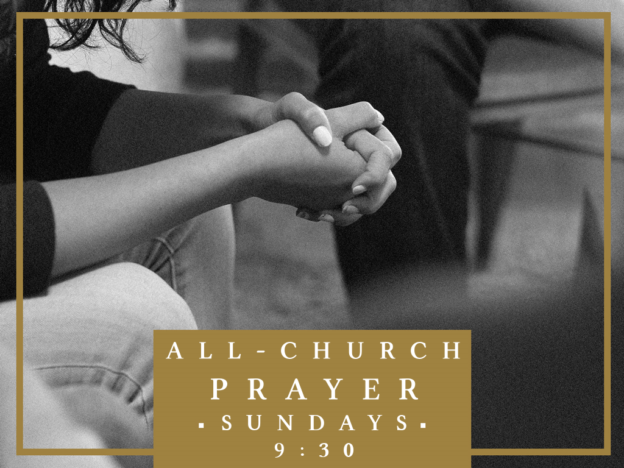 I recently learned that my church was going to close. Well, my church campus, anyway—one of three campuses the church has around the city.
I recently learned that my church was going to close. Well, my church campus, anyway—one of three campuses the church has around the city.
It doesn’t look much like a church in the traditional sense. We meet at a middle school: the main service gathers in the Multi-Purpose Room, while the youth and children fan out to classrooms and the library around the campus. But for many, this middle school is the only church they have ever known, and they have come here at 10:00am every Sunday morning over the past four years. For these, it might as well be the whole church that’s closing.
Others moved from the main campus, which has met for more than ten years at a high school eighteen miles away. They made that move for a variety of reasons: to be part of something new, to support the leaders of this new work, or simply to attend church closer to home.
Whatever brought each person to this location, each will feel its closure uniquely; each will navigate the change in his or her own way. Are there right and wrong ways to navigate? Probably. More helpful, though, would be to speak of healthy and unhealthy ways. I want to help us navigate healthily.
Sit on the ash heap
It begins with recognizing this for what it is: Change, but not only change. It is a loss—a death in some respects—and loss and death are traumatic events. They are to be grieved and mourned.
In the Bible’s epic story of suffering, a righteous man named Job loses everything of value to him in a matter of hours. His tremendous wealth—crops, flocks, herds, and servants—is wiped out or stolen by marauding bandits; and all his children—seven sons and three daughters—perish in a great storm that collapses the house they were celebrating in. But that’s not all: soon he is afflicted with “loathsome sores from the sole of his foot to the crown of his head;” they are so devastating that his friends scarcely recognize the man. Even his wife, reeling from her own loss, tells Job to “curse God and die.”
In his great pain and grief, Job—who had been honored as one of the greatest in the city—goes out of the city to sit on the ash heap, where garbage and dung were burned. On the ash heap he nursed his wounds; on the ash heap, he cried out to God and tried his own heart.
Of course, there is no ash heap for us to sit in today. (I suppose you could trek out to the local dump!) Still, we need to get alone, reflect on the loss, and name the hurt, as one of our pastors said. What am I feeling – anger? hurt? betrayal? sadness? shame? On the ash heap, journal in hand, we can silently name these emotions. We can cry out to God knowing, from Job’s experience, that God can handle all that we feel and say.
Sit with friends
Learning of Job’s great loss, several friends came to sit with him. I love how the English Standard Version says it: “They made an appointment together to come to show him sympathy and comfort him” (Job 2:11, emphasis added). Those are friends we need: people who are aware enough to recognize our hurt and care enough to sit with us – even going so far as to make an appointment together to come together. One of my mentors called these our “3AM friends”: the ones we can call at three o’clock in the morning and know they will pick up the phone!
Sitting in silence. Job’s friends sat with him in silence for seven days and nights. They just sat. No words. Just silence. Henri J.M. Nouwen describes this type of friend:
The friend who can be silent with us in a moment of despair or confusion, who can stay with us in an hour of grief and bereavement, who can tolerate not-knowing, not-curing, not-healing and face with us the reality of our powerlessness, that is the friend who cares.1
Nouwen emphasizes that care must precede cure. Indeed, “cure [without care] can often become offending instead of liberating.” And silence is often best—and usually the first—evidence of care.
Sitting with questions. Here we need to move away from Job’s friends, for after a week, the silence and stench must have gotten the better of them; when they opened their mouths, little grace came forth. Friends who care will ask more than state. It’s not as easy as it sounds; for even questions can condemn, and tone of voice can betray an inner judgment.
(Want to try an experiment? Read the following question out loud four times, emphasizing a different word each time: What are you thinking? Read it once more, emphasizing both the first and last words. Do you notice any difference?)
Good questions are hard work. They probe beneath the surface, get beyond circumstances, express concern. What are you feeling? is often better than What are you thinking?, for loss and hurt are, by definition, feelings. But we also need help thinking right, for great grief can bring about a spiritual vertigo in which up seems down and right seems left. Yet thinking and feeling cannot be divorced: we can think all the right things, but still feel completely out of sorts. We can feel alone in the midst of the most loving community; feel lost while staring at a map; feel numb even as our heart experiences the deepest of pain.
Sitting again with silence. Nor are answers critical, at least in the moment. Sometimes the best question comes at a time when the heart (or the head) cannot provide an answer; but the question nonetheless sits and simmers, waiting for the best time to be answered.
Someone asked our pastor’s wife how she was doing with the decision to close the campus that had long been part of her and her husband’s dream for the church. When the question was asked, she was in the midst of caring for others’ hurts; but later, in the quiet of her own thoughts, she realized that she, too, was hurting – that she, too, needed to sit on the ash heap.
Face God and worship him
For 37 chapters, God is silent in the face of Job’s complaints and his friends’ condemnation. When he finally speaks, we hear little gentleness in his voice. He answers none of Job’s plaintive questions. But he also does not chastise Job for asking. He simply and convincingly emphasizes the vast difference between himself, the Almighty Creator God, and Job, the created. Deeply humbled, Job confesses:
My ears had heard of you
but now my eyes have seen you.
Therefore I despise myself
and repent in dust and ashes.
Job got his wish: an audience with God. But it wasn’t what he expected. Indeed, it was so much more: he gained a new understanding of God; he saw God anew. And in the seeing, he was brought back to the place he’d started: to worship (see Job 1:20).
In my own seasons of loss, I have moved away from the self-pitying question, Why? and sought new revelation of who God is. It’s not easy, and I don’t make the shift easily or consistently. But it’s much more satisfying to look for God in my hurt than to wait in vain for the because that I may not like. And God is so big, so multi-faceted, that there is always a side to him I haven’t yet seen. Indeed, Jesus suggests that knowing God will take an eternity (see John 17:3).
Back to church
Yesterday was our last Sunday at the middle school. It was a time of tears and celebration, of remembering and looking forward. We recognized, thanked, and applauded the dozens of men, women, and children whose labors made “church happen” for the past 200-plus Sundays. We thanked—and were thanked by—the school staff whose facilities we borrowed and cared for. Then we folded the chairs, packed up the room dividers and sound equipment, and loaded the trucks one last time. And then we ate pizza and tacos together.
Next week will be different. Some will go back to the high school campus, but not at 10:00am. Some will visit other churches, wondering if they will find a community anything like what they’ve had these past few years. Others will waken to a hole, a vacant space they’re not quite sure how to fill.
Each heart will be smudged with just a bit of ashes. But ashes can be good fertilizer. Where death and burial are, Jesus offers resurrection.
1 from Out of Solitude: Three Meditations on the Christian Life, by Henri J.M. Nouwen. Ave Maria Press, 1974. 38.



 There is a transcendence in coming to God in his throne room, something far bigger than us—something bigger, indeed, than all of creation, all of history, all of time—because God is bigger: God himself transcends creation, history, time.
There is a transcendence in coming to God in his throne room, something far bigger than us—something bigger, indeed, than all of creation, all of history, all of time—because God is bigger: God himself transcends creation, history, time. I recently learned that my church was going to close. Well, my church campus, anyway—one of three campuses the church has around the city.
I recently learned that my church was going to close. Well, my church campus, anyway—one of three campuses the church has around the city.